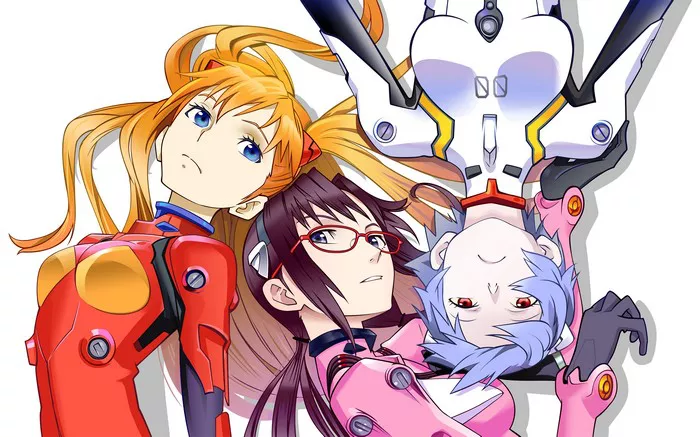Neon Genesis Evangelion stands as a seminal work in the realm of anime, renowned for its intricate plot, complex characters, and philosophical undertones. Central to the series’ narrative are the enigmatic beings known as the Angels, whose appearances trigger cataclysmic events and set the stage for humanity’s existential struggle. In this article, we embark on a journey to unravel the mysteries surrounding the Angels, delving into their origins, characteristics, and significance within the context of Neon Genesis Evangelion.
The Genesis of the Angels: Origins and Purpose
The Angels, also referred to as “Shito” in the original Japanese, are a diverse array of otherworldly entities that descend upon Earth with enigmatic motives. Their origins are shrouded in mystery, with the series offering glimpses of their creation and purpose through cryptic narrative clues and speculative dialogue.
1. Ancient Beings or Cosmic Constructs?
Throughout the series, the true nature of the Angels remains a subject of speculation and debate among characters and viewers alike. Some interpretations suggest that the Angels are ancient beings that predate humanity, while others posit that they are artificial constructs engineered by higher powers for unknown purposes.
2. Harbingers of Destruction or Agents of Change?
As the primary antagonists of Neon Genesis Evangelion, the Angels are often depicted as harbingers of destruction, their appearances heralding catastrophic events that threaten the existence of humanity. However, alternative interpretations propose that the Angels may serve as agents of change, catalysts for evolution and transformation on a cosmic scale.
3. Reflections of Human Nature or Alien Entities?
A recurring theme in Neon Genesis Evangelion is the notion of the Angels as reflections of human nature, embodying aspects of humanity’s collective unconscious and existential fears. This interpretation suggests that the Angels serve as mirrors through which the characters confront their inner demons and grapple with the complexities of existence.
The Diversity of the Angels: Forms and Abilities
One of the most intriguing aspects of the Angels is their diverse array of forms and abilities, ranging from towering monstrosities to ethereal beings of light. Each Angel possesses unique characteristics and powers, challenging the protagonists of Neon Genesis Evangelion in increasingly unpredictable ways.
1. Physical Manifestations and Evolutions
The Angels manifest in a variety of physical forms, each more bizarre and formidable than the last. From colossal titans to amorphous blobs and serpentine entities, the Angels defy conventional classification, evolving and adapting to overcome humanity’s defenses.
2. Supernatural Abilities and Weaknesses
In addition to their imposing appearances, the Angels wield a myriad of supernatural abilities that defy the laws of physics and conventional warfare. These powers range from energy projection and regenerative abilities to reality-warping phenomena, posing formidable challenges to the human forces tasked with combating them.
3. Vulnerabilities and Exploitable Weaknesses
Despite their overwhelming power, the Angels are not invincible, possessing vulnerabilities and exploitable weaknesses that can be leveraged by humanity in their struggle for survival. Whether through strategic ingenuity, technological innovation, or psychological warfare, the protagonists of Neon Genesis Evangelion seek to exploit these weaknesses to gain the upper hand against their formidable adversaries.
The Symbolism of the Angels: Themes and Allegories
Beyond their role as antagonists, the Angels in Neon Genesis Evangelion serve as potent symbols and allegories, representing a wide range of thematic concepts and existential dilemmas.
1. Existential Threats and Cosmic Horror
At their core, the Angels embody existential threats and cosmic horrors that transcend human comprehension, evoking feelings of awe, terror, and existential dread. Their incomprehensible motives and unfathomable powers serve as metaphors for humanity’s collective fears and uncertainties in the face of the unknown.
2. Reflections of Human Frailty and Hubris
In their encounters with the Angels, the characters of Neon Genesis Evangelion confront their own vulnerabilities and shortcomings, grappling with feelings of inadequacy, fear, and existential despair. The Angels serve as mirrors through which the protagonists confront their deepest fears and flaws, ultimately transcending their limitations to achieve newfound strength and resilience.
3. Catalysts for Evolution and Redemption
Despite their destructive tendencies, the Angels also play a crucial role in catalyzing humanity’s evolution and redemption. Through their encounters with the Angels, the characters of Neon Genesis Evangelion undergo profound transformations, confronting their inner demons and forging new paths towards self-discovery and enlightenment.
Conclusion: The Enigmatic Legacy of the Angels
The Angels in Neon Genesis Evangelion stand as enigmatic figures that defy easy categorization, their origins, motives, and significance remaining subject to interpretation and speculation. Whether viewed as ancient beings of cosmic significance, reflections of human nature, or allegorical representations of existential themes, the Angels leave an indelible mark on the narrative landscape of Neon Genesis Evangelion, challenging characters and audiences alike to confront the mysteries of existence and the nature of reality itself. As the series continues to captivate and inspire viewers around the world, the legacy of the Angels endures as a testament to the enduring power of storytelling and the boundless depths of the human imagination.


